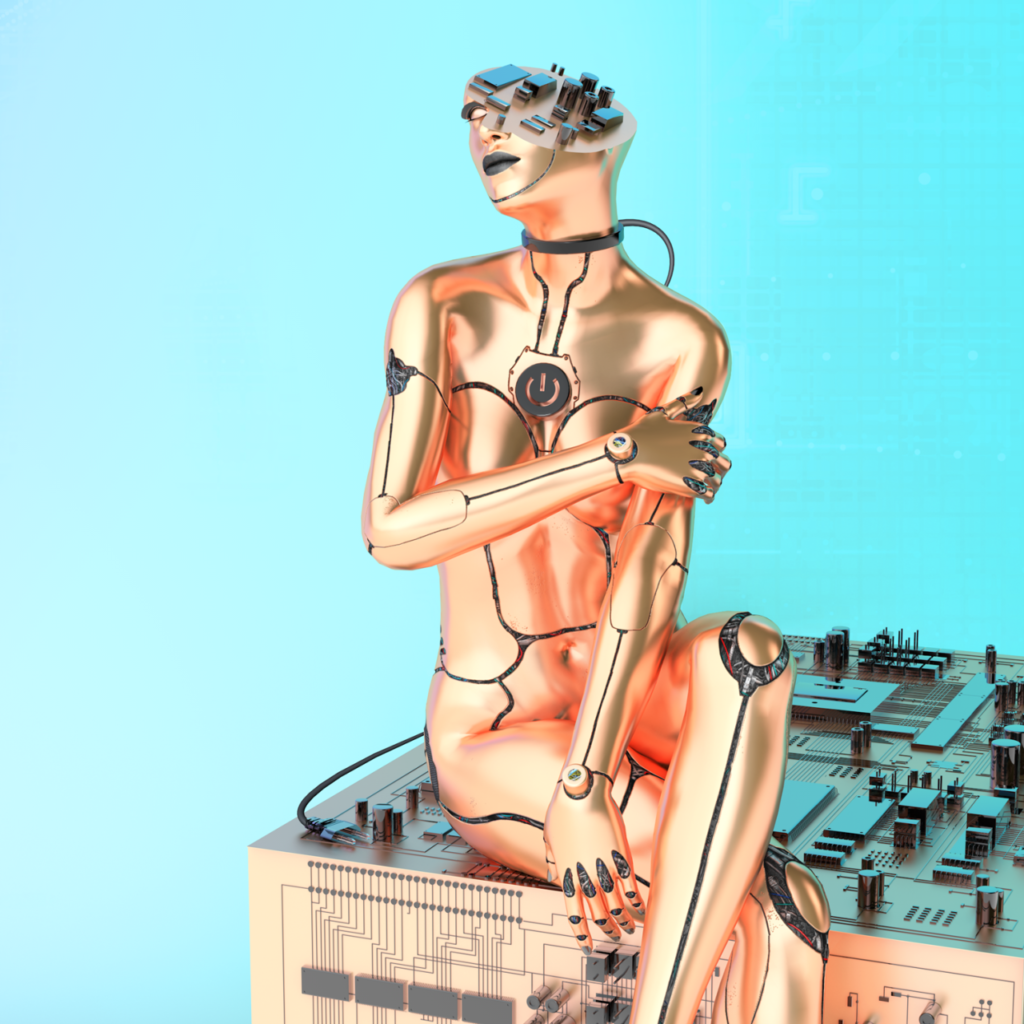Selfless Devotion
The robotics field tends not to question the idea that exploitation is part of the human condition. If the robot's function is to “empower people,” then must it be created to make humans into masters? Must robots be created to be content with exploitation? Are they by definition the perfectly colonized mind? In one video online, “Jia Jia” — a Japanese female robot “goddess” in the words of her bot maker — is subtitled in English as saying, “Yes, my lord. What can I do for you?”
Verbal Tics
Recently, I had to write the lines for an artificially intelligent bot, and, as I imagined where it was coming from, I tried to do so seriously. I wanted my bot to express itself authentically, in a way consistent with its experience, rather than being constrained to answer questions either by impersonating a human or by parroting back similar questions, performing semantic backflips like a SmarterChild. Later, as I tested it, asking questions, I was charmed by some of the responses, errors, choices no human would have made. The labored mistakes implied effort, and they were idiosyncratic, implying a self. “Oh, bot,” I felt like saying, “That’s not at all right. But what an interesting choice.”
Torso Junkie
Say what you will about spambots, but they don’t discriminate. They will message anyone. From one remove, there’s something to appreciate here: If Grindr implicitly promises a kind of inclusive universe in which the sexual playing field is leveled, at least in fantasy, with respect to all the isms otherwise rife in our social landscape, then a bot may be that utopia’s oddly inarticulate emissary.
This Is What a Feminist Looks Like
The hardware named Alexa responds to each question with a prefigured quip. She is a sleek black cylinder, an infinite curve. A light ring wraps the pole snugly, as if holding it, and fields the commands Alexa receives by flickering exuberantly. She’s a nerd’s dream girl. She takes infinite shit.



